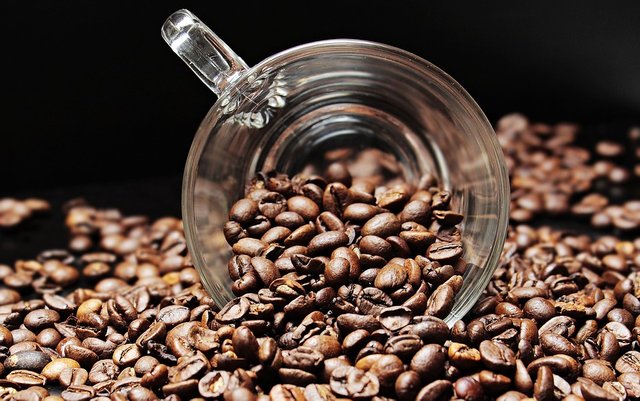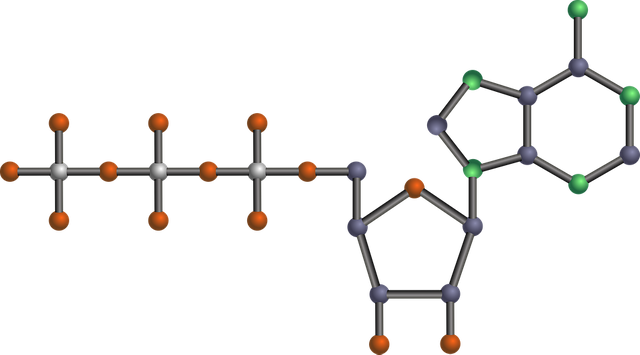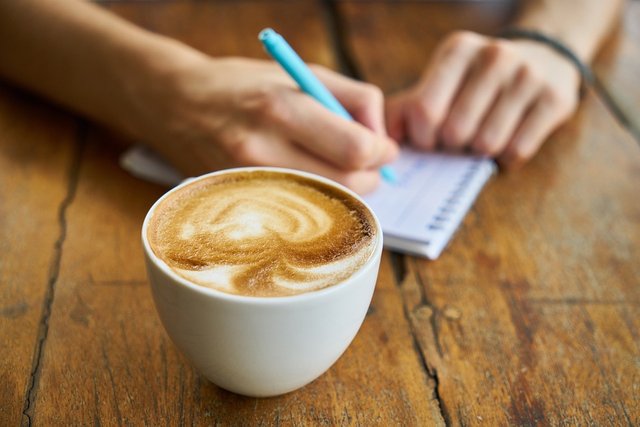Have you ever asked yourself how coffee works?
Every day we use things without fully grasping how they work. I get it, we are often too busy to worry about learning things that would just satisfy our curiosity without really giving us tangible advantage. That’s why people drive to work without knowing how an engine works, they use bitcoins and even invest their savings in them without knowing how they work, we use computers and software without knowing how to code and most importantly we all abuse the most widely used psychoactive drug, coffee, without knowing what it does to our brain.
Certainly, you don’t need to know this to continue having a good life, but if you are at least a little curious about how coffee works, continue reading.
Especially in the western society we grew up surrounded by myths. Why do we believe myths? Because they make a good story and sometimes we’d rather believe a good story instead of a messier truth. Generally speaking, we were primed to think that if something is giving us pleasure it must be bad for us. Coffee is obviously one of the most targeted substances, despite the fact that it contains high concentrations of Flavonoids. These are potent anti-oxidant and inti-inflammatory molecules (Ref Book 1). But let’s delve into the biology.
Let’s start by having a nice cup of coffee. Each cup of coffee contains about 100 mg of caffeine (or 1, 3, 7-trimethylxanthine) (Fredholm 1995). The caffeine is absorbed in the gastrointestinal tract, at the peak levels, the amount of caffeine that can be found in our body fluids after a cup of coffee range from 0.5 to 3 mg/L. However, its half-life varies from 2 and half to 4 and half hours, this means that after few hours caffeine lose half of its biological activity (Fredholm 1995). A study found that on average in North Europe we assume a total of 300 mg per day of caffeine per person (Fredholm 1995). We drink so much coffee because often we have a very intense work life and caffeine increases our alertness and cognitive performance, plus as we will see later, it also causes the release of dopamine thus giving us a boost and a sensation of pleasure (Panza et al. 2015).
Probably the key to the biological activity of caffeine is its ability to inhibit the adenosine receptors. Oh, now that’s clear right?
Probably not, let’s see what these adenosine receptors are.
As you know ATP (Adenosine triphosphate) is the fuel of our cells. ATP is then continuously broken down and re-synthesized. Adenosine is released when ATP is broken down, this means that when a cell had high intensity of metabolic activity it will also contain plenty of adenosine. This molecule can also be released in the extracellular environment. Our brain cells can sense the presence of adenosine because they have adenosine receptors, when they bind to adenosine they signal to the cells that probably it’s time to take a break. In other words, adenosine also acts as a homeostatic regulatory factor, that orchestrates the rate of energy consumption and the supply rate of metabolites (Fredholm 1995). So when there is too much adenosine the neural cells become more lethargic. There are several different receptors for adenosine but it was found that coffee can inhibit the receptor A1 and the receptor A2.
Receptor A1: it decreases the rate of neural firing and also causes a decrease in the release of neurotransmitters. By inhibiting this receptor, caffeine increases neural firing.
Receptor A2: it’s involved in the dopaminergic transmission. By inhibiting this receptor, caffeine has an excitatory effect, causing the release of dopamine and glutamate.
So, I guess by now we are all aware of the short term effects of caffeine but there are also long-term effects. In fact, it was found that animals that were received caffeine for long periods of time developed tolerance since their brain cells started expressing more receptors A1 (Fredholm 1982). However, to determine the long term effects is not straight forward as for example caffeine was found to exacerbate the symptoms of ischemic brain damage in the short term (Dux et al. 1990) but have the opposite effect when assumed for prolonged period of time and even prevent ischemic brain damage (Rudolphi et al. 1989). Long term treatment with caffeine could decrease locomotive activity (Nikodijević, Jacobson, and Daly 1993) but increase the capacity for spatial learning (Von Lubitz, Paul, Bartus, et al. 1993).
One of the most notable and puzzling effects of caffeine is on seizures. It is known in fact that high doses of caffeine taken in short periods of time could exacerbate seizures but if caffeine is taken for prolonged periods of time it can actually have the opposite effect and have a protective effect anti-seizures (Von Lubitz, Paul, Carter, et al. 1993).
A more recent study also found that prolonged intake of caffeine and tea, prevents the insurgence of cognitive impairment/decline and dementia in elderly people. However, the authors of the research did not find a direct correlation between dose and protective effect, but they found the women benefit more than men from assumption of caffeine (Panza et al. 2015).
Overall, the balance is net positive for the assumption of caffeine, there are downsides (as anything if you take too much of it). But coffee is not as bad as we first thought. Drinking a couple of cups of coffee can enhance your productivity as long as you don’t drink it in the evening, in that case it will affect your sleep and make you tired and unproductive the day after. About the addiction to coffee it could probably be associated with his inhibitory effects on the receptors A2. As a result, more dopamine and glutamate will be released in your brain, giving you euphoric addictive feelings (Huang et al. 2005).
References
- Ref Book 1: Encyclopedia of herbal medicine - Andrew Chevallier
- Dux, E et al. 1990. “Protective Effect of Adenosine and a Novel Xanthine Derivative Propentofylline on the Cell Damage after Bilateral Carotid Occlusion in the Gerbil Hippocampus.” Brain research 516(2): 248–56. http://www.ncbi.nlm.nih.gov/pubmed/2364291.
- Fredholm, B B. 1982. “Adenosine Actions and Adenosine Receptors after 1 Week Treatment with Caffeine.” Acta physiologica Scandinavica 115(2): 283–86. http://www.ncbi.nlm.nih.gov/pubmed/6291335.
- Fredholm, 1995. “Astra Award Lecture. Adenosine, Adenosine Receptors and the Actions of Caffeine.” Pharmacology & toxicology 76(2): 93–101. http://www.ncbi.nlm.nih.gov/pubmed/7746802.
- Huang, Zhi-Li et al. 2005. “Adenosine A2A, but Not A1, Receptors Mediate the Arousal Effect of Caffeine.” Nature neuroscience 8(7): 858–59. http://www.ncbi.nlm.nih.gov/pubmed/15965471.
- Von Lubitz, D K, I A Paul, R T Bartus, and K A Jacobson. 1993. “Effects of Chronic Administration of Adenosine A1 Receptor Agonist and Antagonist on Spatial Learning and Memory.” European journal of pharmacology 249(3): 271–80. http://www.ncbi.nlm.nih.gov/pubmed/8287914.
- Von Lubitz, D K, I A Paul, M Carter, and K A Jacobson. 1993. “Effects of N6-Cyclopentyl Adenosine and 8-Cyclopentyl-1,3-Dipropylxanthine on N-Methyl-D-Aspartate Induced Seizures in Mice.” European journal of pharmacology 249(3): 265–70. http://www.ncbi.nlm.nih.gov/pubmed/8287913.
- Nikodijević, O, K A Jacobson, and J W Daly. 1993. “Locomotor Activity in Mice during Chronic Treatment with Caffeine and Withdrawal.” Pharmacology, biochemistry, and behavior 44(1): 199–216. http://www.ncbi.nlm.nih.gov/pubmed/7679219.
- Panza, F et al. 2015. “Coffee, Tea, and Caffeine Consumption and Prevention of Late-Life Cognitive Decline and Dementia: A Systematic Review.” The journal of nutrition, health & aging 19(3): 313–28. http://www.ncbi.nlm.nih.gov/pubmed/25732217.
- Rudolphi, K A, M Keil, J Fastbom, and B B Fredholm. 1989. “Ischaemic Damage in Gerbil Hippocampus Is Reduced Following Upregulation of Adenosine (A1) Receptors by Caffeine Treatment.” Neuroscience letters 103(3): 275–80. http://www.ncbi.nlm.nih.gov/pubmed/2812514.





Veramente interessante! Però ti devo dire che per esempio io spesso bevo il caffè anche dopo cena e non ho problemi nel dormire... Però farò delle prove e voglio vedere se evitandolo la sera noto differenze anche se apparentemente il sonno non viene disturbato.
Se bevi il caffe' da tanto tempo forse hai sviluppato una resistenza alla caffeina :) comunque consigliano di evitare il caffe' almeno 3 ore prima di dormire, conta che ogni 2 o 3 ore l'effetto del caffe' si dimezza
Fai conto che non ne bevo molti però sono costante, uno alla mattina e uno dopo cena solitamente, però se dici che dopo 3 ore cambia già allora non c'è problema prima delle 2 non sono mai a letto tra steemit e i mercati delle crypto :).
And bad stories too! :D
In short, I should stop drinking my evening coffee and I will get more productive, is that correct? :D
Ahaha you are right about the bad stories :) I think your day starts when you go to sleep not when you wake up, if you sleep well you are going to feel great for the day. You can always drink decaf in the evening :)
I could... drink decaf... I could... but naaaah... this is for weaklings :D
ahahah Science demands true coffee!
It is also the proper time... now :D
Bel lavoro bro. Io da quando allatto non bevo più nessun tipo di caffeina. Mi concedo solo un cappuccino e un caffè 1/2 volte alla settimana. Hai fatto un ottimo articolo comunque 😊
Ti ringrazio, dai visto che cosi tanti italiani hanno commentato oggi, domani (americano) scrivo un articolo in italiano
Sei un ragazzo in gamba. A domani 😉
Grazie :)
Complimenti, veramente un bel post (anche se l’ho letto tramite Google translate...) e argomento molto interessante!
Ti ringrazio, mi piacerebbe scriverli in italiano questi post ma se vedi nel mio profilo quando scrivo in italiano mi votano in pochi
Thanks god! =)
Davvero molto interessante @aboutcoolscience!
Well done!
Sono una caffeinomane, adesso avrò tante nuove scuse per continuare a ingurgitare la mia dose giornaliera di caffè! (Forse un po' troppo, è vero...ma il caffè è caffè!)
ahahha a lungo termine fa' bene e poi i numeri dicono che chi beve caffe' vive piu' a lungo, quindi direi che sei salva :)
Io sono il miglior amico della barista 😂😂quindi campo 100 anni
Bel post👍
Slipping my morning coffee, I have to congratulate you to this interesting article!! ;)
As I already had discussions with my friends: Do you coincidentally know if the caffeine in black or green tea is exactly the same molecule (meaning 1, 3, 7-trimethylxanthine) as in coffee?
Greeting, Coco
Thank you, I am guessing they are the same, probably they contain different concentrations
Doppia lingua la prossima volta please... post interessante!
Grazie, purtroppo quando scrivo in italiano non mi caga nessuno :) Il prossimo post lo faccio in italiano
Ok, comunque seguirti è un buon modo per migliorare il mio inglese!
Those short-term vs long-term effects, very counter-intuitive. I guess more of a bad thing can be good for you, right?
I wish it was as simple as that, that's why it's so difficult to develop drug for the central nerve system, to say it in scientific terms: it's a bit of a mess